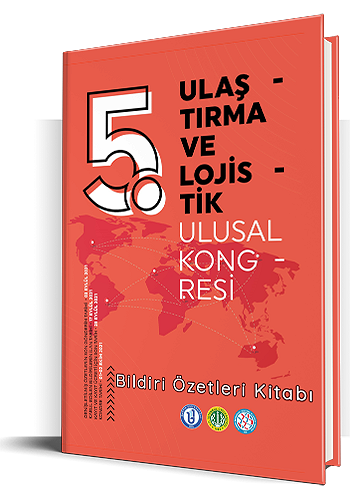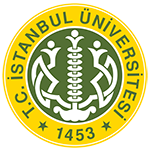
Ulaştırma ve Lojistik Kongreleri
- Türkçe
- Özet
- 2021
Lojistik Sektöründe İnsan Kaynağının Önemi
Halit Kaya
MLA Lojistik Ticaret A.Ş., , Türkiye
Lojistik; müşteriler tarafından talep edilen ürün ve hizmetlerin istenilen yerde, istenilen zamanda etkin ve efektif olarak temin edilmesi olarak tanımlanabilir. Son yıllarda küresel düzeyde yaşanan rekabet, firmaları, ürünlerini daha hızlı hazırlamaya ve teslim etmeye doğru yöneltmektedir. Bu durum doğal olarak rekabeti doğurmaktadır. Lojistik faaliyetler üzerinde yapılacak uygulamalar ile rakiplerinin önüne geçmek mümkündür. Böyle bir rekabet ortamında pazar payı ve kârın artırılabilmesinin en önemli yolu, lojistik faaliyetlerdir (Kara vd. 2009: 69) Son yıllarda küresel düzeyde yaşanan rekabet, işletmeleri müşterilere karşı verilen hizmetlerde hızlı ve kaliteli olmaya, tam zamanında teslimata zorlamaktadır. Dolayısıyla rekabet edebilir olabilmek adına lojistik hizmetlerin önemi her geçen gün artmakta bu da lojistik sektöründe pazarın gittikçe büyümesine yol açmaktadır. Lojistik hizmetlerde, ürün akışının sağlanması ve sürecin devamlılığı olması açısından Türkiye ekonomisi içinde büyük bir önem taşımaktadır. Lojistiğin faaliyet alanı ve rolü son yıllarda önemli bir biçimde değişmeye başlamıştır. Lojistik genel olarak, pazarlama ve üretim gibi işletme fonksiyonları için destekleyici bir rol oynamıştır. Son yıllarda ise lojistik, çok daha belirgin bir biçimde ortaya çıkarak işletmelerde rekabet avantajı sağlamak için kritik bir faktör olarak bilinmeye başlamıştır. Faaliyet alanı; başlangıçta ulaşım ve depolamayla sınırlı olan lojistik; satın alma, dağıtım, stok yönetimi, e-ticaret, sipariş yönetimi, işleme, paketleme, parça ve hizmet desteği, üretim programlama, iadeler, talep tahmini, atıkların geri kazanılması,imha edilmesi ve hatta müşteri hizmetlerini de içine alarak genişlemiştir (Baki, 2004; 21 içinde Coyle vd. 1992; Johnson vd. , 1999; Magee vd., 1985). Günümüzde lojistik faaliyetler; taşıma, depolama, elleçleme, sigorta, müşteri hizmetleri, satın alma, sipariş ve talep yönetiminden oluşmaktadır. Bu faaliyetlerden taşıma sistemleri lojistik süreçler içerisinde en önemli unsuru oluşturmaktadır. Taşımacılık, insanlığı modern ve gelişmiş dünya ticaretine taşıyan en önemli araçlardan biri olarak görülmektedir. Taşımacılık olmadan insanlığın gelişmesi, ticaretin ve teknolojinin yaygınlaşmasının mümkün olamayacağı düşünülmektedir. Global anlamda her geçen gün büyüme gösteren lojistik sektörü, emek yoğun bir sektör olması nedeniyle insan kaynakları yönetimi açısından önemlidir. 2000 yılı öncesinde sektör firmalarının maksimum %10'u insan kaynakları yönetimi uygularken, bugün bu oran %90'lara ulaştığı görülmektedir. (www.utikad.org.tr). Hızla gelişen, dinamik bir yapıya sahip, bütünleşmiş hizmet sunma yönünde süreçlerini sorgulayan sektörde, insan kaynaklarının da dinamik olmak zorunda olduğu değerlendirilmektedir. Yetişmiş personelin önemli bir yere sahip olduğu sektörde, uzmanlaşmış eleman ihtiyacı her geçen gün artmaktadır. E-ticaretin son yıllarda büyümesi ile birlikte depo ve dağıtım personeli ihtiyacı artmıştır. Türkiye de ki, Haziran 2009 ile Haziran 2021 tarihleri arasında ki lojistik sektörü çalışan sayısını gösteren tablo aşağıdadır. Tablo:1 Grup H Grup H-49 Grup H-50 Grup H-51 Grup H-52 Grup H-53 Haz.09 513,492 293,906 22,569 19,741 118,138 59,138 Haz.10 567,706 331,059 23,636 22,158 130,967 59,886 Haz.11 658,815 398,214 23,749 24,809 146,612 65,431 Haz.12 727,799 448,462 24,103 25,127 159,062 71,045 Haz.13 762,382 477,326 23,364 27,121 161,454 73,117 Haz.14 812,914 515,505 23,818 29,250 170,384 73,957 Haz.15 845,090 541,448 24,000 32,404 171,306 75,932 Haz.16 867,032 555,682 23,273 37,665 172,353 78,059 Haz.17 882,624 550,746 23,254 36,025 195,857 76,742 Haz.18 928,948 572,692 24,181 37,602 217,369 77,104 Haz.19 908,680 558,591 23,098 43,145 206,776 77,070 Haz.20 909,278 558,351 21,702 42,091 202,938 84,196 Haz.21 1.023.850 644,746 23,711 41,221 215,443 98,729 2009-2021 Değişim 99,39% 119,37% 5,06% 108,81% 82,37% 66,95% Kaynak: www.insights.tirport.com H- Ulaştırma ve Depolama H49- Kara taşımacılığı ve boru hattı taşımacılığı H50- Su yolu taşımacılığı H51- Hava yolu taşımacılığı H52- Taşımacılık için depolama ve destekleyici faaliyetler H53- Posta ve kurye faaliyetleri Bu çalışmada lojistik sektöründe çalışan personelin yapısı, işe alım süreçleri, sosyal hakları ve gelecekte ki durumu gibi konulara değinilecektir. Bu çalışmanın amacı gelecekte lojistik sektöründe çalışmak veya lojistik bölümlerinde eğitim almak isteyen insanların insan kaynakları boyutu ile sektör hakkında bilgi sahibi olmalarına katkı sağlamaktır. Kaynakça Baki, Birdoğan. (2004). Lojistik Yönetimi ve Lojistik Sektör Analizi. Volkan Matbaacılık, I. Baskı Trabzon. Kara, M., Tayfur, L., & Basık, H. (2009). Küresel Ticarette Lojistik Üslerin Önemi ve Türkiye/The Importance of Logistics CentersiIn Global Trade And Turkey. Mustafa Kemal Üniversitesi Sosyal Bilimler Enstitüsü Dergisi, 6(11), 69-84. https://www.utikad.org.tr/Detay/Sektor-Haberleri/8645/lojistik-sektorunde-insan-kaynaklari-ve-kalite-yonetimi https://insights.tirport.com/ucretli-calisan-sayisi-1/ İşletme/Lojistik ORCİD: 0000-0002-3280-2492
Anahtar Kelimeler: İnsan Kaynakları, Hizmet, Lojistik, İşletme, Personel
The Importance Of Human Resources in the Logistics Industry
Logistics; It can be defined as the efficient and effective provision of products and services requested by customers at the desired place, at the desired time. Competition at the global level in recent years has led companies to prepare and deliver their products faster. This naturally creates competition. It is possible to get ahead of its competitors with the applications to be made on logistics activities. In such a competitive environment, the most important way to increase market share and profit is logistics activities (Kara et al. 2009: 69). Therefore, in order to be competitive, the importance of logistics services is increasing day by day, which leads to the growth of the market in the logistics sector. In logistics services, it is of great importance in the Turkish economy in terms of ensuring product flow and continuity of the process. The field of activity and role of logistics has begun to change significantly in recent years. Logistics generally played a supporting role for business functions such as marketing and production. In recent years, logistics has emerged much more prominently and has become known as a critical factor to provide competitive advantage in businesses. Activity area; logistics, initially limited to transportation and warehousing; It has expanded to include purchasing, distribution, stock management, e-commerce, order management, processing, packaging, parts and service support, production scheduling, returns, demand forecasting, waste recovery and disposal, and even customer service (Baki, 2004). ;21 in Coyle et al. 1992; Johnson et al., 1999; Magee et al., 1985). Today, logistics activities; transportation, storage, handling, insurance, customer service, purchasing, order and demand management. Of these activities, transportation systems constitute the most important element in logistics processes. Transportation is seen as one of the most important means of transporting humanity to the modern and developed world trade. It is thought that the development of humanity and the spread of trade and technology would not be possible without transportation. The logistics sector, which is growing every day in a global sense, is important in terms of human resources management because it is a labor-intensive sector. While maximum 10% of the sector companies applied human resources management before 2000, it is seen that this rate has reached 90% today. (www.utikad.org.tr). It is considered that human resources must also be dynamic in the rapidly developing sector, which has a dynamic structure and questions its processes towards providing integrated services. In the sector, where trained personnel have an important place, the need for specialized personnel is increasing day by day. With the growth of e-commerce in recent years, the need for warehouse and distribution personnel has increased. Below is the table showing the number of employees in the logistics sector between June 2009 and June 2021. Table:1 Group H Group H-49 Group H-50 Group H-51 Group H-52 Group H-53 June 09 513,492 293,906 22,569 19,741 118,138 59,138 June 10 567,706 331,059 23,636 22,158 130,967 59,886 June 11 658,815 398,214 23,749 24,809 146,612 65,431 June 12 727,799 448,462 24,103 25,127 159,062 71,045 June 13 762,382 477,326 23,364 27,121 161,454 73,117 June 14 812,914 515,505 23,818 29,250 170,384 73,957 June 15 845,090 541,448 24,000 32,404 171,306 75,932 June 16 867,032 555,682 23,273 37,665 172,353 78,059 June 17 882,624 550,746 23,254 36,025 195,857 76,742 June 18 928,948 572,692 24,181 37,602 217,369 77,104 June 19 908,680 558,591 23,098 43,145 206,776 77,070 June 20 909,278 558,351 21,702 42,091 202,938 84,196 June 21 1.023.850 644,746 23,711 41,221 215,443 98,729 2009-2021 Change 99,39% 119,37% 5,06% 108,81% 82,37% 66,95% Reference: www.insights.tirport.com H- Transportation and Storage H49- Land transport and pipeline transport H50- Water transport H51- Air transport H52- Storage and supporting activities for transportation H53- Postal and courier activities In this study, the structure of the personnel working in the logistics sector, recruitment processes, social rights and future status will be discussed. The aim of this study is to contribute to people who want to work in the logistics sector or to get education in the logistics departments in the future, to have information about the human resources dimension and the sector. Reference Baki, Birdoğan. (2004). Lojistik Yönetimi ve Lojistik Sektör Analizi. Volkan Matbaacılık, I. Baskı Trabzon. Kara, M., Tayfur, L., & Basık, H. (2009). Küresel Ticarette Lojistik Üslerin Önemi ve Türkiye/The Importance of Logistics CentersiIn Global Trade And Turkey. Mustafa Kemal Üniversitesi Sosyal Bilimler Enstitüsü Dergisi, 6(11), 69-84. https://www.utikad.org.tr/Detay/Sektor-Haberleri/8645/lojistik-sektorunde-insan-kaynaklari-ve-kalite-yonetimi https://insights.tirport.com/ucretli-calisan-sayisi-1/
Keywords: Logistics, Human Resources, Business, Service, Personnel


Bu çalışma, kullanan kişilere orjinal çalışmadan alıntı yaptıkları sürece, çalışmayı dağıtma, değiştirme ve üzerine çalışma hakkı tanıyan Attribution 4.0 International (CC BY 4.0) lisansı ile lisanslanmıştır.
İletişim
İstanbul Üniversitesi Ulaştırma ve Lojistik Fakültesi
İ.Ü. Avcılar Kampüsü 34320 Avcılar/İstanbul
ulk@istanbul.edu.tr
+ 90 (212) 440 00 00 - 19200


